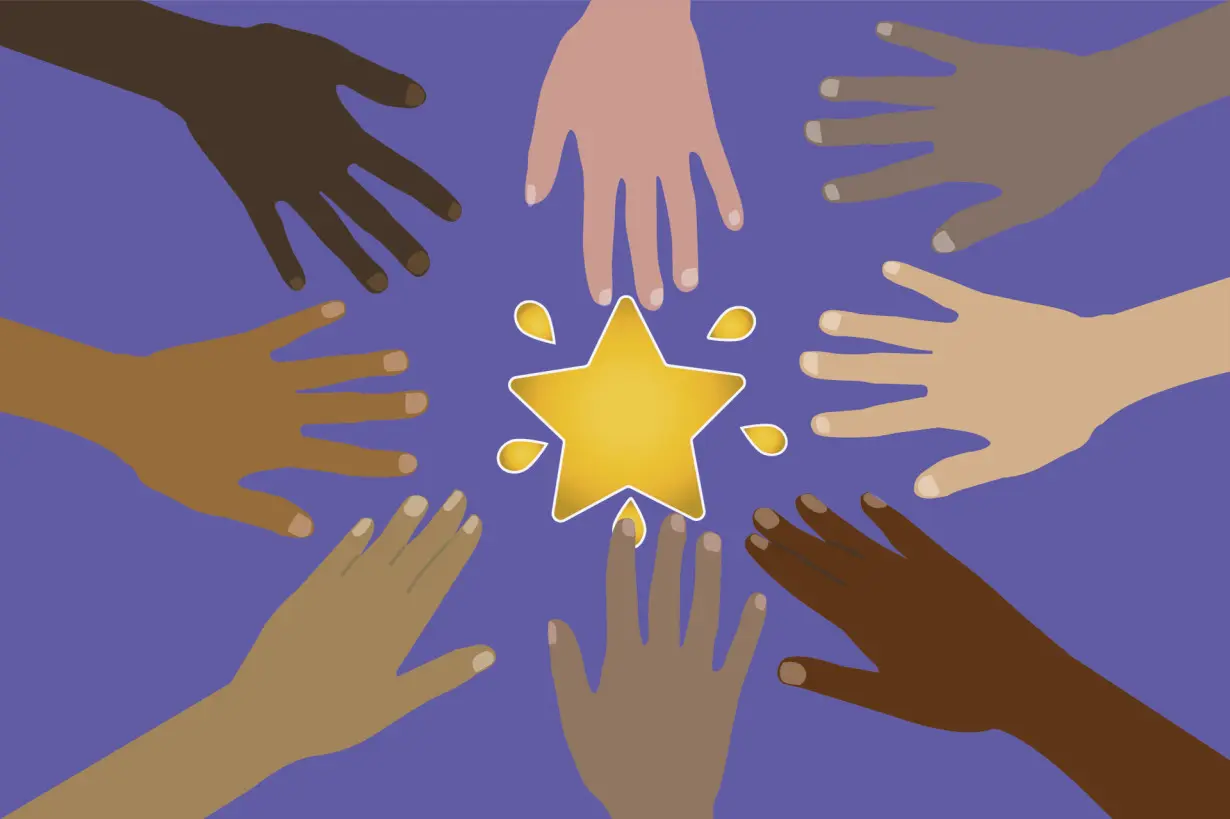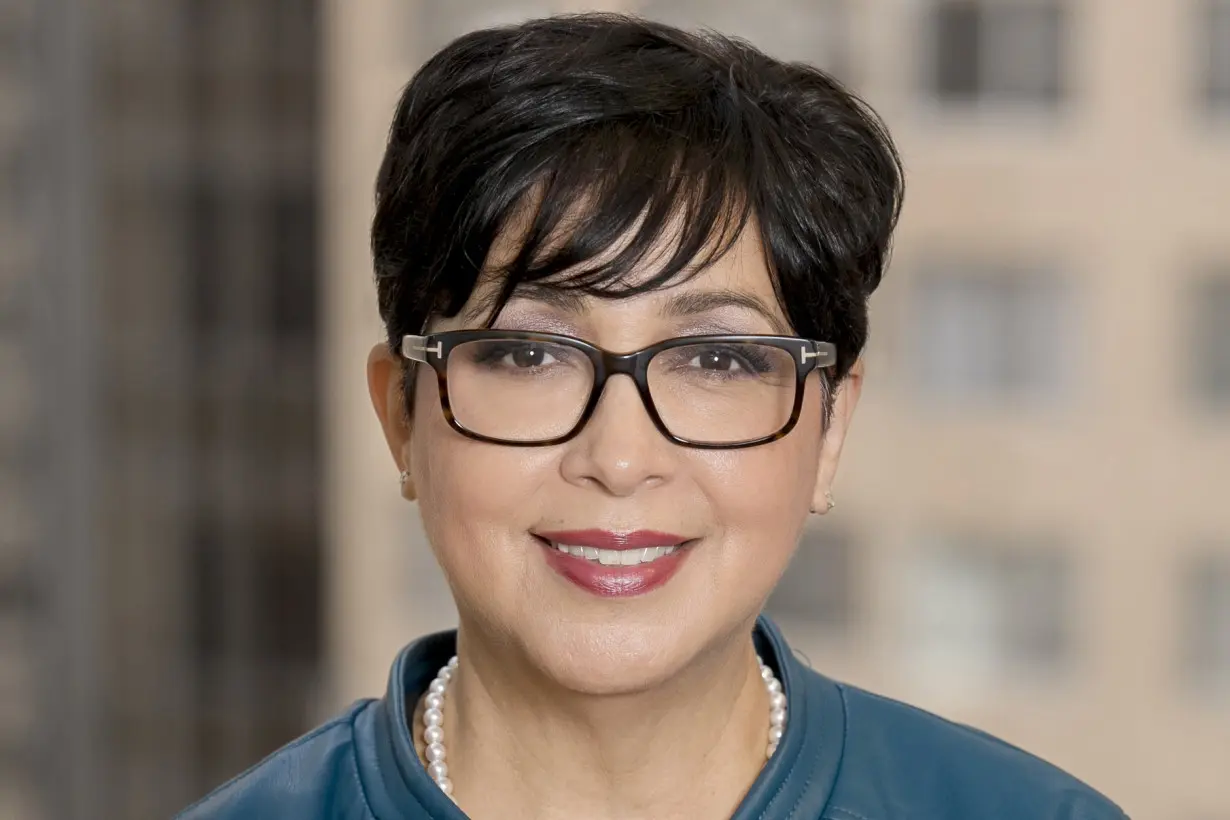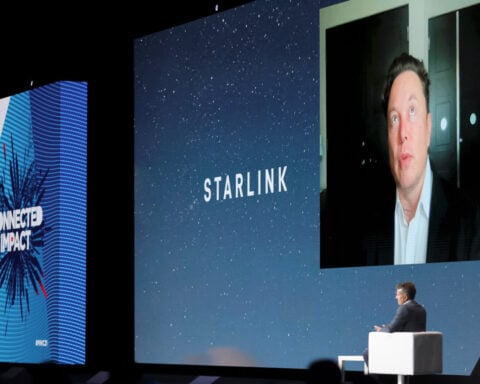NEW YORK (AP) — It didn't take long for Nellie Borrero to encounter racism in 1986 when she joined a major consulting firm that was the predecessor to Accenture.
A secretary handed her a subway token and told her she was the “token hire.” At her first Christmas party, the partner who hired her gave her brightly wrapped gift that turned out to be roach spray and told her everyone knew Puerto Ricans had roaches in their homes. The next Monday, Borrero confronted the partner to explain she felt humiliated and felt she didn't belong at the company. The partner, Borrero says, expressed remorse and promised to help her change the company's culture if she stayed.
Borrero, now Accenture's senior strategic adviser for global inclusion and diversity, shared these stories in “Unwavering: Rejecting Bias, Igniting Change, Celebrating Inclusion,” a new book detailing her nearly 40-year effort to build DEI (diversity, equity, and inclusion) practices at the company. In 2020, Accenture set goals surrounding racial and gender representation in its U.S. workforce, including increasing the number of Hispanic U.S. employees from 9.5% to 13% by 2025 and the number of Hispanic U.S. managing directors from 3.5% to 4.7%.

In an interview with The Associated Press, Borrero discusses her book and why Accenture is sticking with its goals despite a legal battle against DEI policies by conservative activists and elected officials. The interview has been edited for length and clarity.
Q: The story about the gift was shocking to me. Did he really not realize it was offensive?
A. He thought he created an environment where everybody laughed and had a great joke and a great laugh. For me it was demeaning and it was hurtful. It minimized me. It embarrassed me, but he did not take the time to even think about that as a possibility. But what I loved about that moment is that it became the moment when I knew I had to change the culture.
Q: You have other anecdotes where you share your own mistakes dealing with communities you are not as familiar with. Can you tell me about creating room for allowing mistakes?
A. We have a lot of people that want to be allies but are awkward allies. They don't want to hurt, they don't want to offend. I've been there. And what I've understood is the magic of that word grace. We have to give each other grace in this process. We can choose to educate the person that committed the offense or whatever you want to call it. They can choose to receive it. So I would stay let's start with a place of grace. Then if you do take the time to educate that person and they continue to behave a certain way, then grace is gone, right?
Q: How do you see this moment in the DEI space?
A. Some of the inroads that myself and others that are diversity practitioners have fought for and positioned for, we are running the risk of going backwards. All this time it had been about going forward. That's what concerns me. However, that concern gets diminished when I remind myself that for the organizations that understand the business imperative, the business value of diversity from the perspective of clients and customers, they are going to continue to support diversity.
Q: Accenture has goals on representation, which is one of the things groups have challenged as maybe constituting illegal hiring.
A. We set out those goals because we wanted to hold ourselves accountable. We still have those goals in place for 2025 and we are one year from meeting those goals and I’m super, super excited about the representation we have across the board when it comes to diversity. We are staying steadfast on those goals.
Q: The number of Latinos and Black people in managerial roles at Accenture is still small. Do you see the progress as slow or just right?
A. I cannot tell you the level of effort it has taken to even get there. So we are going to continue to put intensity into this. When I think about the level of intention, strategic approach, high touch — all these things that need to happen — this is heavy, heavy lifting. I am pleased to where we are but I’m not satisfied.
________
The Associated Press’ women in the workforce and state government coverage receives financial support from Pivotal Ventures. AP is solely responsible for all content. Find AP’s standards for working with philanthropies, a list of supporters and funded coverage areas at AP.org.

 Trump has begun another trade war. Here's a timeline of how we got here
Trump has begun another trade war. Here's a timeline of how we got here
 Canada's leader laments lost friendship with US in town that sheltered stranded Americans after 9/11
Canada's leader laments lost friendship with US in town that sheltered stranded Americans after 9/11
 Chinese EV giant BYD's fourth-quarter profit leaps 73%
Chinese EV giant BYD's fourth-quarter profit leaps 73%
 You're an American in another land? Prepare to talk about the why and how of Trump 2.0
You're an American in another land? Prepare to talk about the why and how of Trump 2.0
 Chalk talk: Star power, top teams and No. 5 seeds headline the women's March Madness Sweet 16
Chalk talk: Star power, top teams and No. 5 seeds headline the women's March Madness Sweet 16
 Purdue returns to Sweet 16 with 76-62 win over McNeese in March Madness
Purdue returns to Sweet 16 with 76-62 win over McNeese in March Madness








